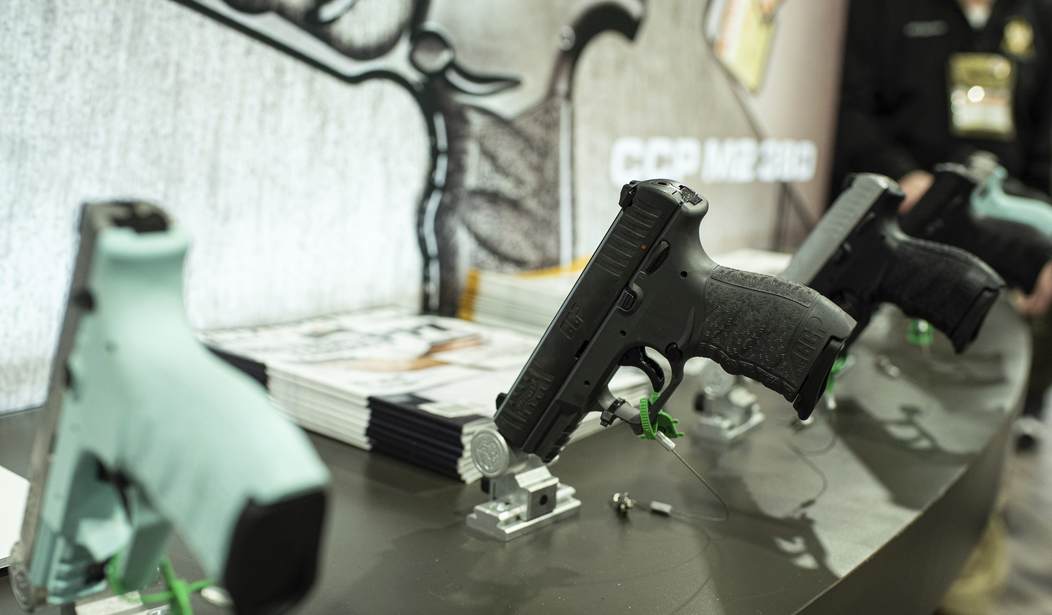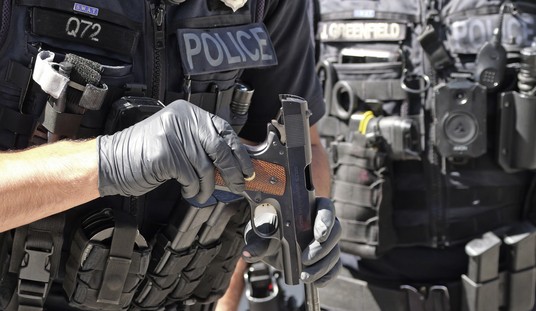Hours before the public comment period closes on the DOJ's proposed rule laying out a pathway for prohibited persons to have their Second Amendment rights restored, the Second Amendment Foundation has released its own comments on the proposal.
In a letter to Kira Gillespie, a Deputy Pardon Attorney at the DOJ, SAF hailed the proposal as a "a tremendous step forward in that it will finally provide a sensible pathway to help restore the rights of millions of Americans who seek such relief but have had no avenue besides pursuing costly lawsuits or uncertain pardons to do so."
That being said, SAF still sees room for improvement, just like other 2A groups like the National Rifle Association and Gun Owners of America.
However, the rule should go even further in its embrace of an individual’s purported dangerousness as the only relevant metric to determine whether firearms rights should be restored. If it does not do so, then litigation will almost assuredly continue as to those categories, which will be costly for both those seeking to have their rights restored as well as the government in defending those laws. Such litigation burdens the federal judiciary while contributing little to public safety.
Specifically, SAF notes that the proposed rule "would make those convicted of any violation of 18 U.S.C.922(g), other than Section 922(g)(1), presumptively ineligible for rights restoration." That's a big problem, given that it would sweep up a lot of individuals who are prohibited from possessing firearms based on convictions for non-violent crimes.
18 U.S.C. § 922(g)(3) makes it a crime for anyone to possess a firearm or ammunition if they are “an unlawful user of or addicted to any controlled substance.” But at least for certain drugs, there is no indicia of dangerousness that arises from someone possessing a gun while being a user of those drugs, unless they were carrying or using the gun while presently intoxicated – which is not dispositive of dangerousness on its face but certainly has the hallmark of being irresponsible. The primary drug that rears its head in this context is marijuana, which has been legalized in 40 states for medicinal purposes and 24 states for recreational use. While cases are ongoing, several circuit courts have fully or partially ruled against the government and the enforcement of the federal prohibition. Someone using marijuana while their firearms are safely stored away at home, and only handling the firearms after they are no longer under the influence, is not inherently dangerous. Indeed, many Americans drink recreationally and do so while owning firearms. Individuals seeking relief from Section 922(g)(3)’s prohibition, at least as it relates to an underlying offense involving marijuana, should not be subject to a flat bar on applications. The Proposed Rule should be revisited on this point, as refining it to create some pathway to rights restoration for certain marijuana users would both be fair and save the government on litigation expenses.
SAF similarly takes issue with the presumptive disqualification for anyone convicted under 922(g)(4), which bars anyone who's been adjudicated mentally defective or been committed to a mental institution from owning firearms.
Once their mental health has fully recovered, there is no ongoing danger from their possession of firearms and thus such individuals’ rights should be restored if they can document their recovery –such as having a mental health professional evaluate their mental state and determine whether they can possess firearms without being a danger to themselves or others. Provided their only crime was the possession of a firearm alone without more, such applicants should be treated no differently than others seeking rights restoration after being adjudicated to be a mental defective or committed to a mental institution (discussed infra).
That makes sense. If someone who was adjudicated as mentally ill or committed to an institution but are now healthy, productive members of society, they should be among the first to have their rights restored. They certainly shouldn't be deemed presumptively disqualified from seeking relief from the DOJ, at least not without compelling evidence that their mental illness still makes them a danger to themselves or others (in which case, frankly, they should probably still be institutionalized).
Finally, SAF objects to 922(0) convictions serving as de facto disqualifications.
... again, there is nothing inherently “dangerous” about possessing a machine gun. For example, one criminal defendant is being charged with possessing a PPSh-41, a Russian submachine gun that was used in World War 2. Such a weapon is obviously not very likely to be used in crimes but attracts collectors who may have an interest in historical weaponry. Unfortunately for such people, machine guns are effectively banned.
Another example is Patrick Tate Adamiak’s arrest, prosecution, and incarceration. Adamiak an avid collector of historic military memorabilia, was charged with a violation of 18 U.S.C. § 922(o) for possessing PPSh parts that were entirely disassembled, cut in half, and inoperable. Despite having honorably served our nation for over a decade in the United States Navy, under the current drafting of the rule Adamiak would be unable to seek relief from his federal firearms disability, which was imposed on him for a box of inoperable parts. Such a result is unconscionable. Those whose only crime is possessing an arm that the government provides them with no legal pathway to own should not be permanently banned from owning firearms, nor barred from making an application for relief.
Adamiak never should have been prosecuted to begin with, but assuming his appeals fail and he has to serve the remainder of his sentence, he absolutely should be eligible to have his rights restored once he's released from prison.
All in all, these are reasonable suggestions that, along with those offered by groups like NRA and GOA, would substantively improve the DOJ's proposed rule. Fingers crossed the DOJ is open to making these changes, and that the final rule, when its published, incorporates all of the additions provided by the Second Amendment community.
Editor’s Note: The Schumer Shutdown is here. Rather than put the American people first, Chuck Schumer and the radical Democrats forced a government shutdown for healthcare for illegals. They own this.
Help us continue to report the truth about the Schumer Shutdown. Use promo code POTUS47 to get 74% off your VIP membership.









Join the conversation as a VIP Member